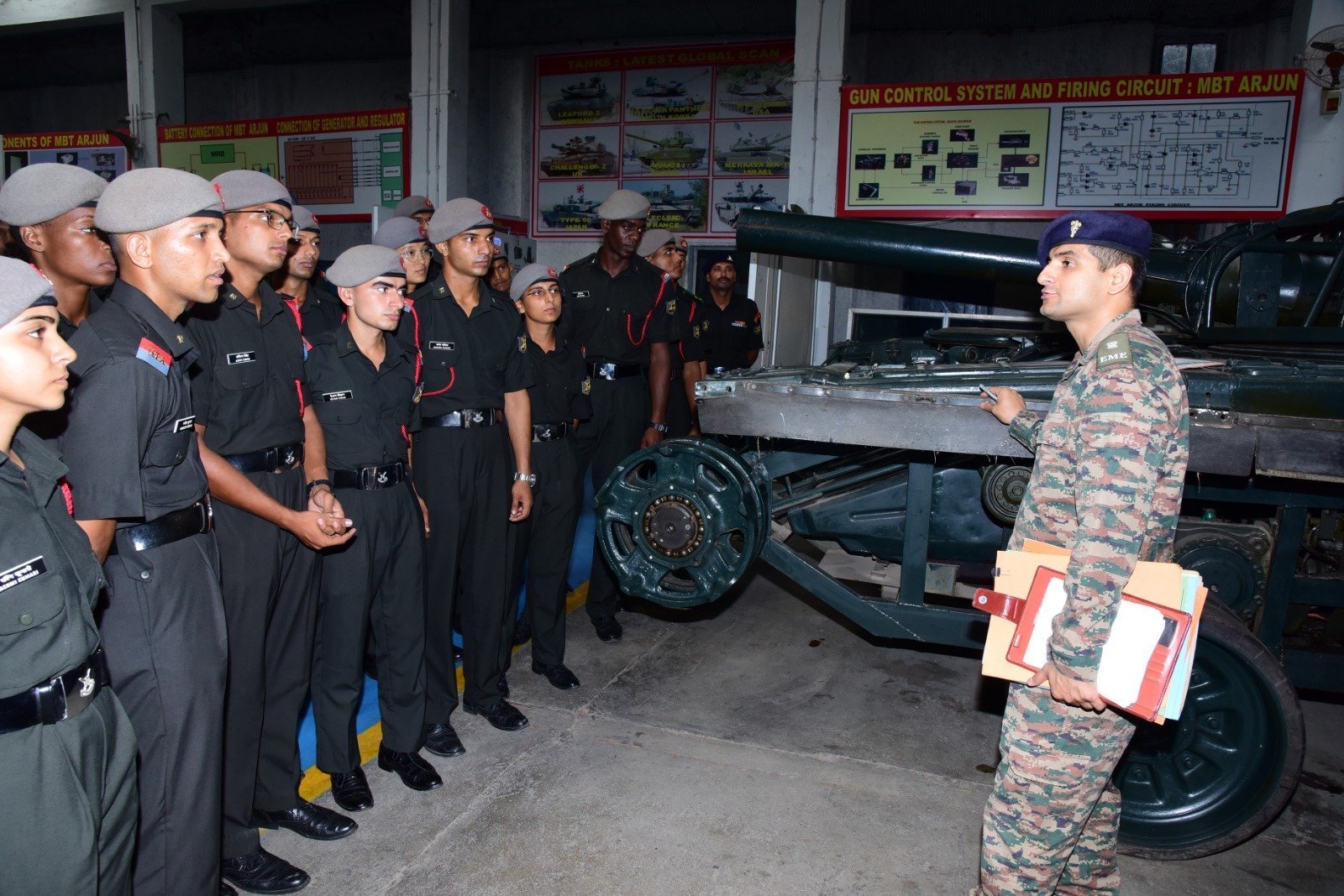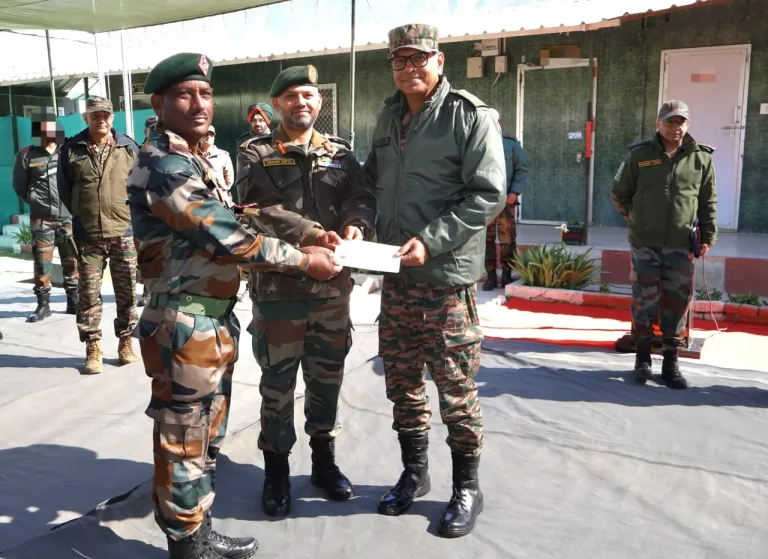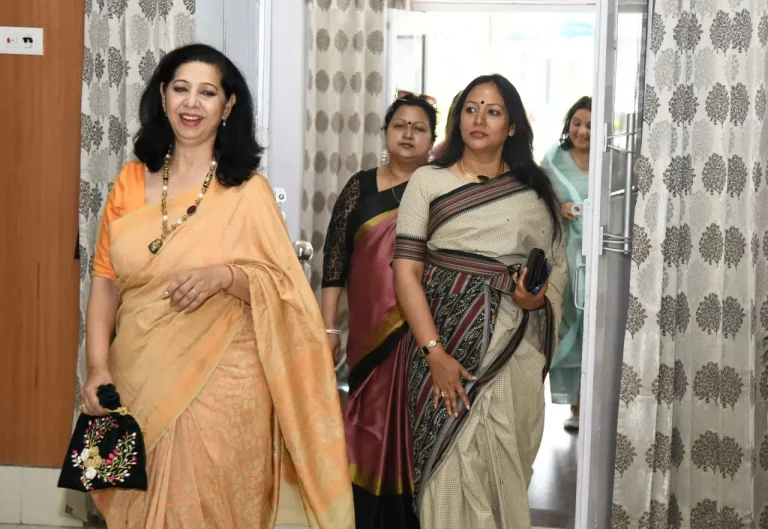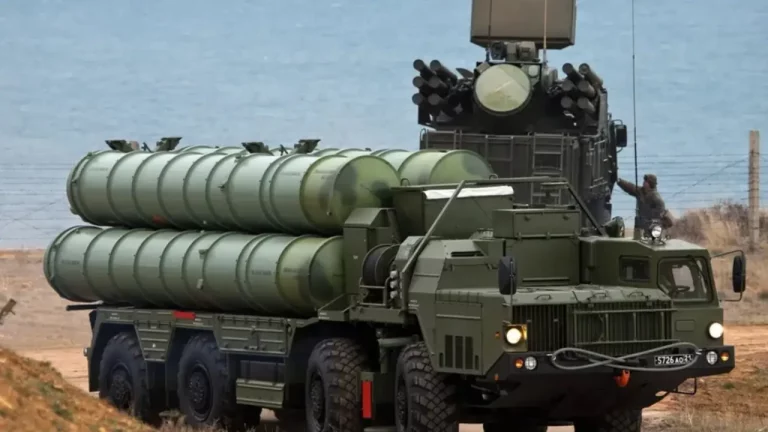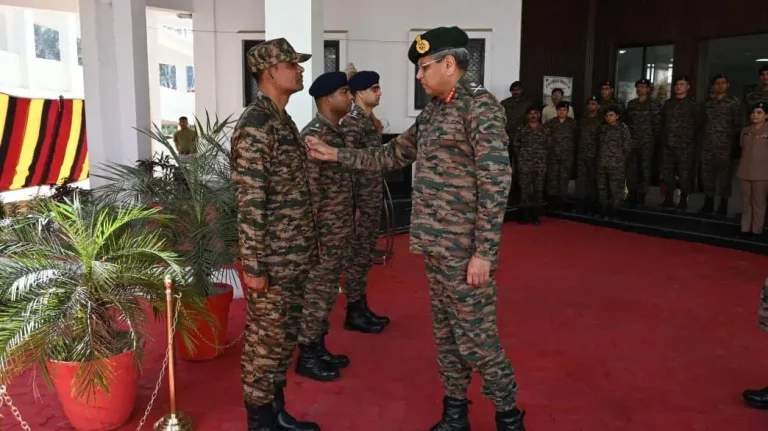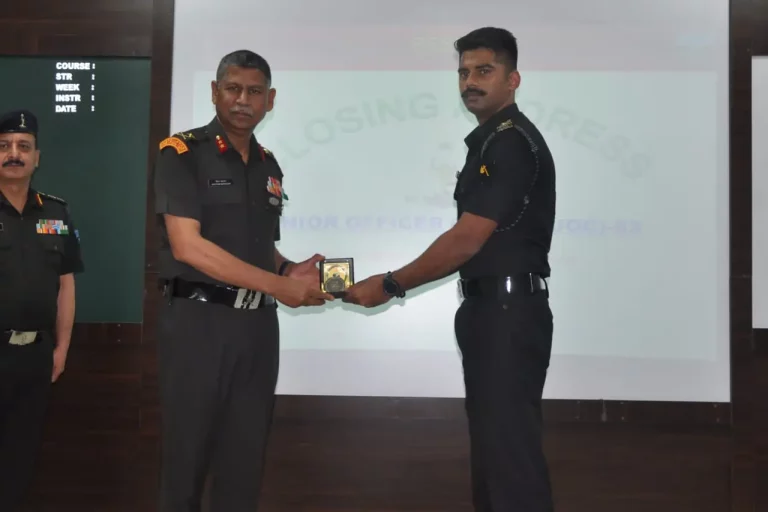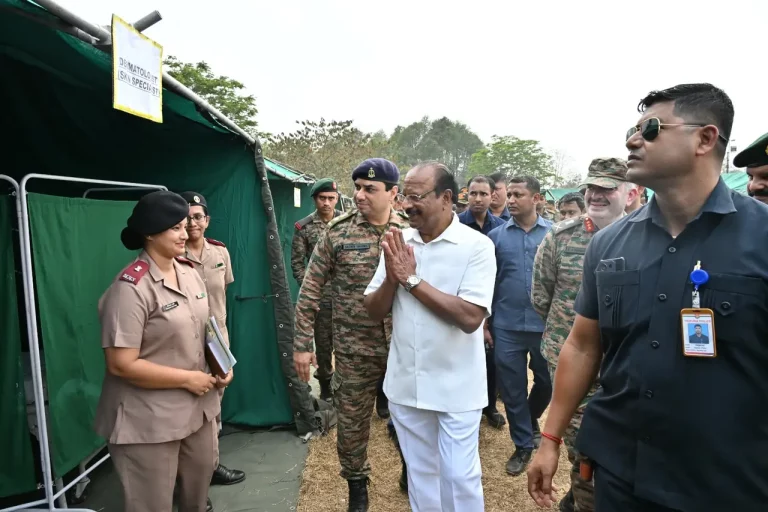A group of 45 officer cadets from the Officers Training Academy (OTA) in Chennai recently participated in a pivotal field visit to the Military College of Electronics and Mechanical Engineering (MCEME) in Secunderabad. This initiative is part of a broader effort to enhance the technological expertise of future military leaders, focusing on the essential role of the Corps of Electronics and Mechanical Engineers (EME) in maintaining the Indian Army’s combat readiness through innovation and engineering support.
As the Indian Army increasingly evolves into a technology-driven organization, such educational initiatives are crucial in molding a new cadre of officers proficient not only in tactical warfare but also in managing sophisticated defense systems. The cadets are currently undergoing an intensive 49-week training program aimed at preparing them for Short Service Commission, and the exposure to EME’s extensive responsibilities in designing, developing, and maintaining military hardware is invaluable.
During the visit, cadets experienced a variety of immersive demonstrations and displays. A scaled-down model of a modern military facility highlighted EME’s infrastructure planning capabilities. A functional drone system showcased real-time surveillance applications, while a historically significant artillery gun connected the past to the present, illustrating how legacy systems are upgraded to meet current warfare demands. These exhibits offered cadets firsthand experience of the integration of traditional equipment with cutting-edge technology.
Interactive sessions conducted by seasoned instructors from MCEME, many of whom have firsthand experience in defense technology and logistics, further enriched the cadets’ understanding. The sessions highlighted EME’s expanded role as not just a maintenance entity but a strategic facilitator for high-tech platforms such as unmanned aerial vehicles (UAVs), electronic warfare systems, and cyber defense modules. Cadets learned about the critical incorporation of artificial intelligence, robotics, and simulation technologies in army operations—essential elements in modern combat scenarios.
MCEME, established in 1943 during World War II, has evolved into a leading technical training institute for the Indian Army. Over the years, it has constantly adapted its curriculum and infrastructure in response to changing battlefield dynamics. It trains not only Indian Army personnel but also hosts officers from allied nations, bolstering India’s soft power and defense diplomacy.
The timing of this visit coincides with insights from a 2023 Defence Modernisation Study, which indicated that around 70% of a military force’s operational capability relies on technical support systems. Consequently, the roles of engineers and technical officers are increasingly essential, especially in hybrid warfare scenarios that involve electronic disruptions and AI-driven decision-making.
By integrating this understanding into cadets’ training, the Indian Army aims to cultivate a tech-savvy leadership capable of adapting to evolving warfare dynamics. The cadets engaged in meaningful discussions about the necessity of transitioning from traditional command-driven leadership to a model that incorporates data and technology. Many voiced their admiration for the innovations presented at MCEME, recognizing the significance of mastering technical knowledge in their future roles.
This visit transcended mere academic learning; it represented the Indian Army’s commitment to nurturing a future-ready force. The insights gained during this experience will likely shape how these cadets approach leadership and operational decisions as they move into active service. Additionally, the visit underscored the Army’s “Decade of Transformation” initiative that focuses on evolving infrastructure, doctrine, and human resources to address the challenges of a complex and rapidly changing security landscape.
As India aims to assert itself as a prominent global military power, initiatives that blend tradition with cutting-edge technology are pivotal in developing officers prepared for both conventional and unconventional warfare. The event concluded with a commemorative group photograph and remarks from senior MCEME faculty, who encouraged the cadets to embrace lifelong learning and innovation in their service to the nation.
